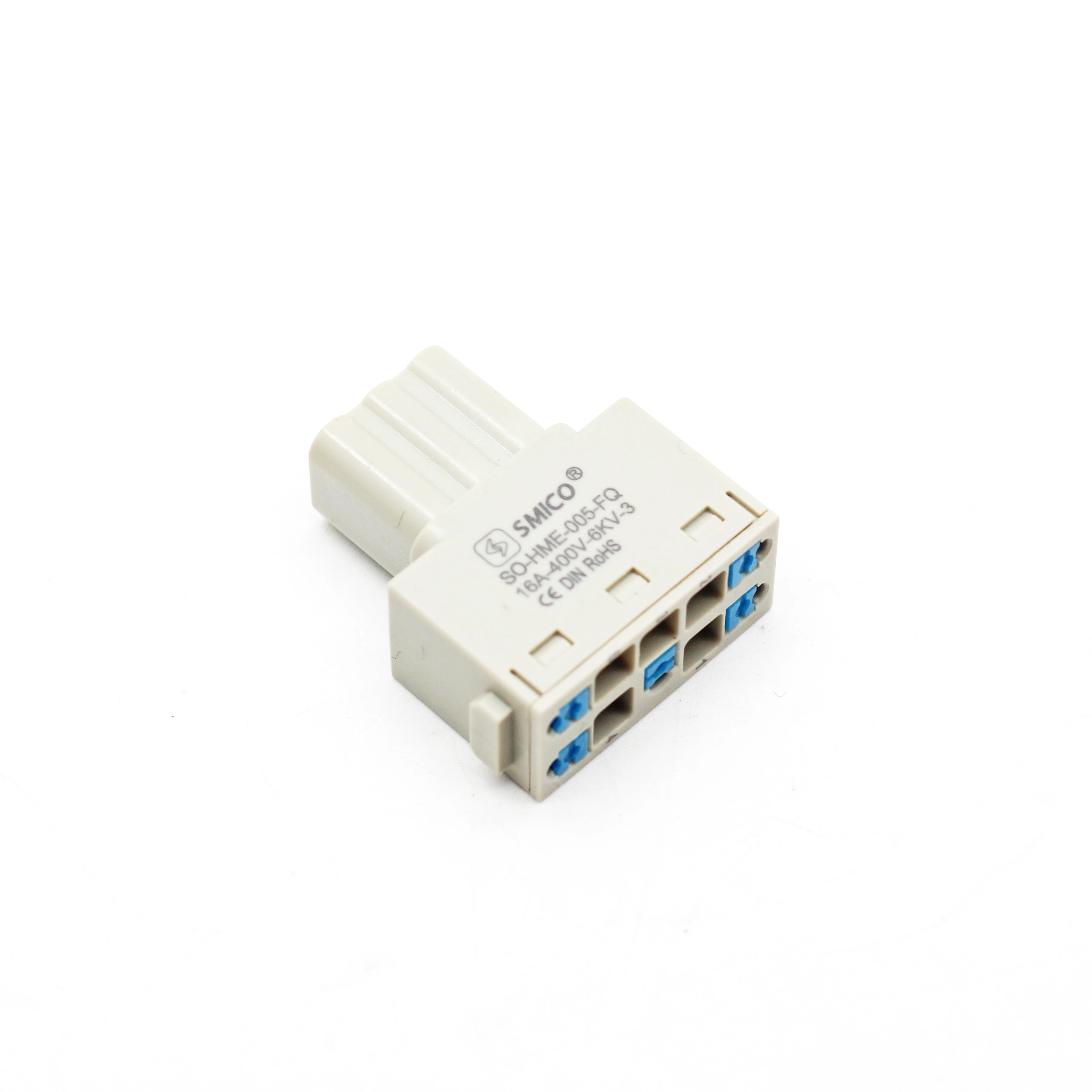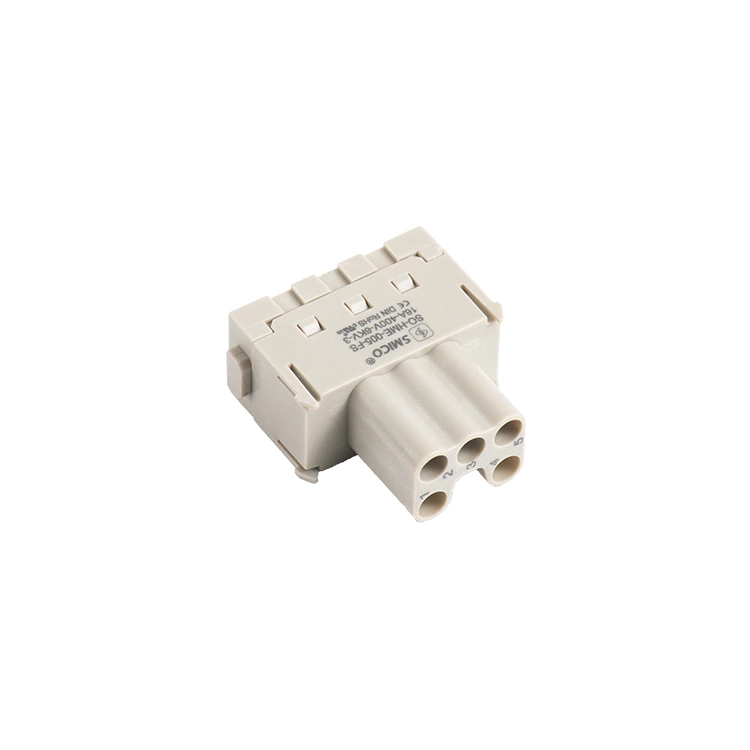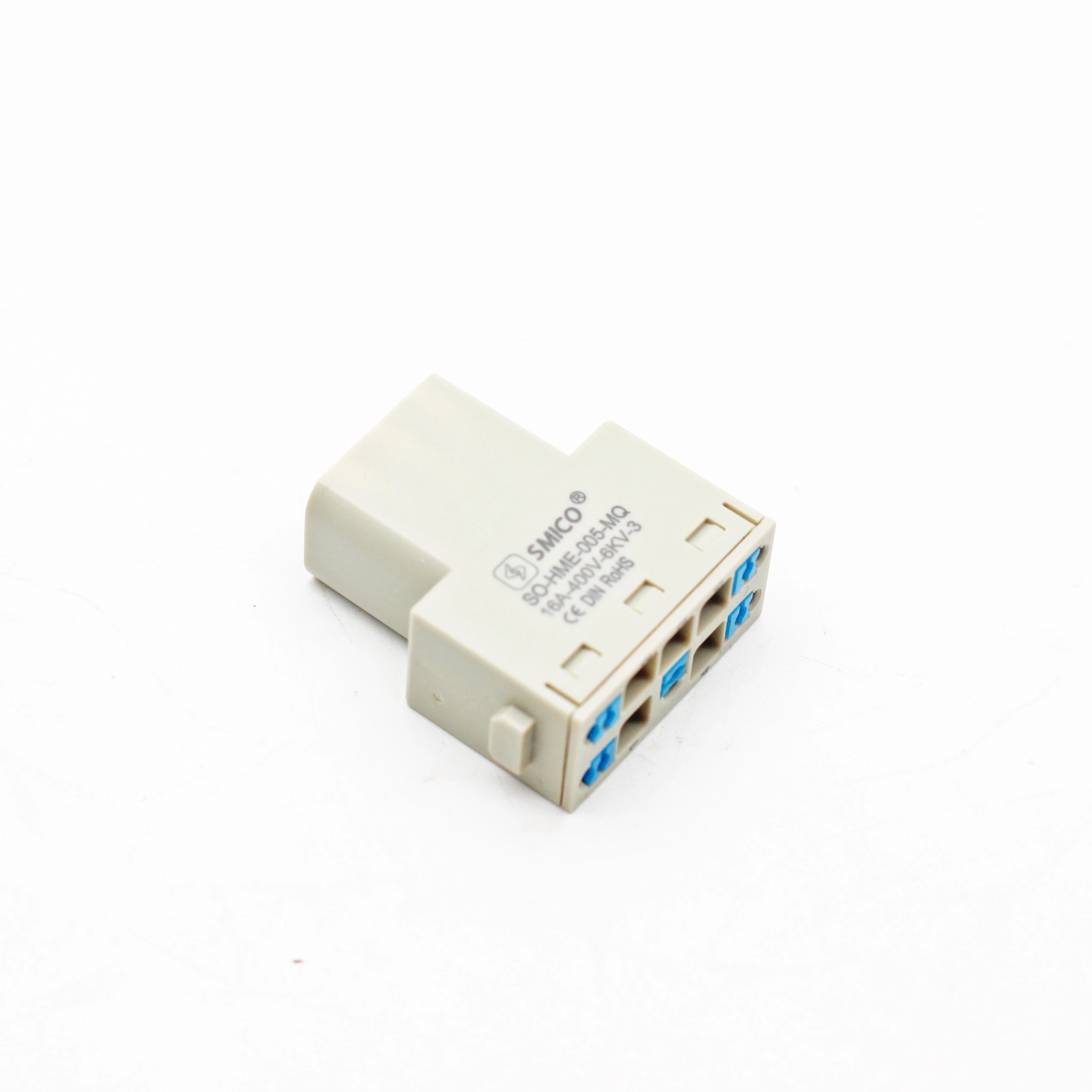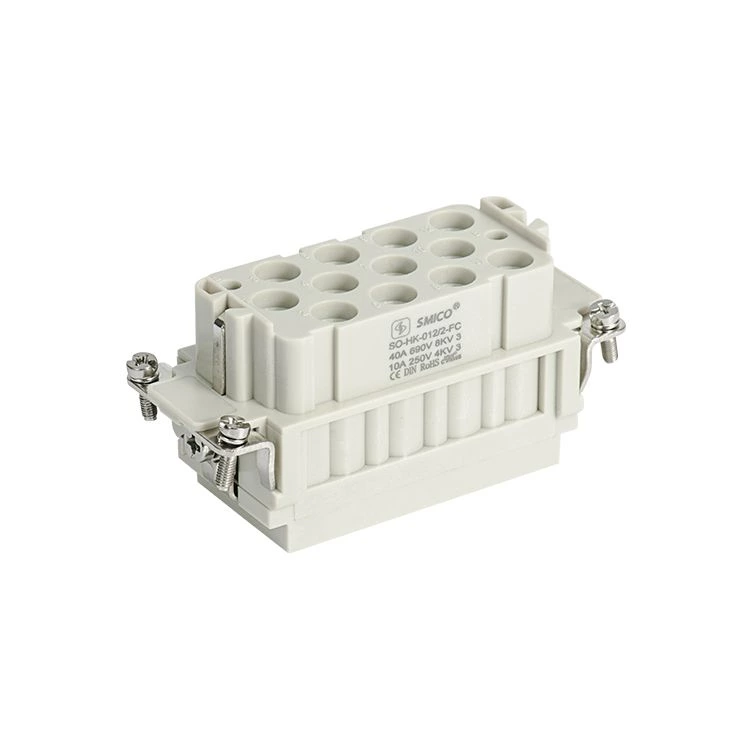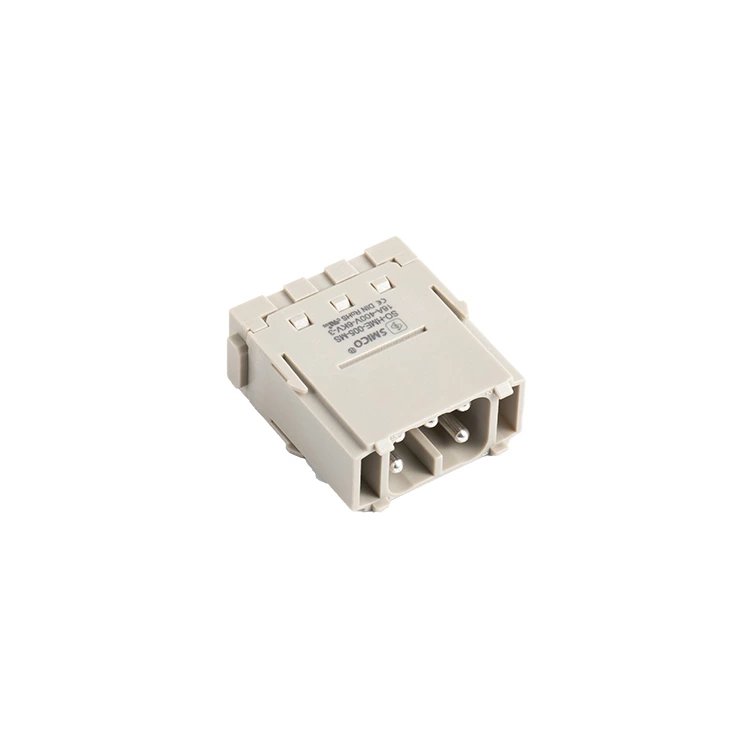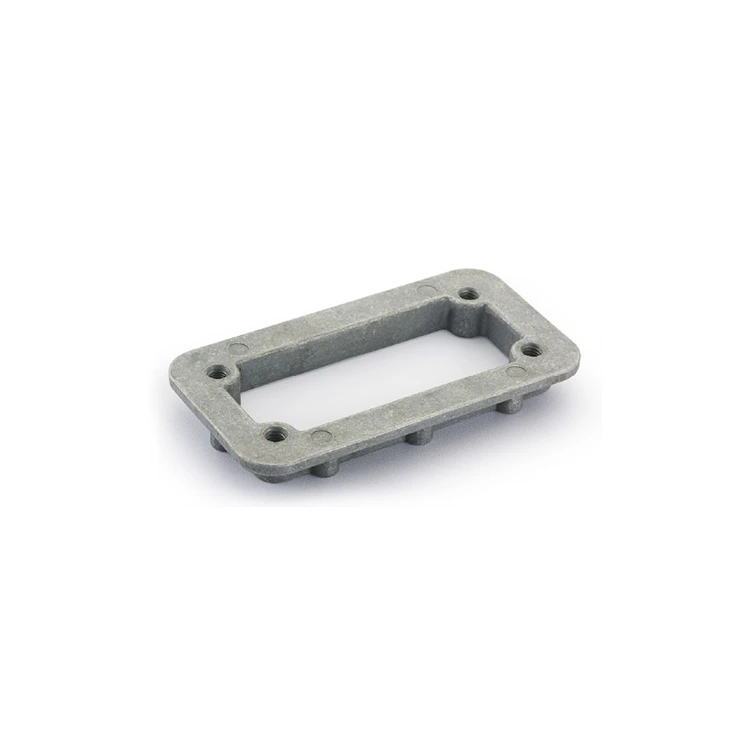Why Use Heavy-Duty Connectors? A Comprehensive Guide to Their Benefits and Applications
In the fields of electrical engineering, mechanical manufacturing, and industrial automation, heavy-duty connectors (HDCs) play a critical role. They not only ensure the stable operation of equipment in harsh environments but also improve system reliability and maintenance efficiency. This article delves into the advantages, applications, and reasons why heavy-duty connectors are indispensable in modern industries.
What Are Heavy-Duty Connectors?
Heavy-duty connectors are electrical connection devices specifically designed for high-load, high-intensity, and harsh environments. They typically consist of robust housings, high-quality contacts, and reliable sealing systems, capable of withstanding extreme temperatures, humidity, vibration, and shock. Compared to standard connectors, heavy-duty connectors offer superior mechanical strength and electrical performance, making them suitable for complex industrial environments.
Advantages of Heavy-Duty Connectors
1. High Reliability and Durability
Heavy-duty connectors are made from premium materials and manufactured with precision, ensuring stable electrical connections in extreme conditions. Whether in high or low temperatures, humid or corrosive environments, heavy-duty connectors guarantee uninterrupted equipment operation and reduce failure rates.
2. Simplified Installation and Maintenance
The modular design of heavy-duty connectors simplifies installation and maintenance. With pre-assembly and quick-connect features, engineers can quickly complete equipment setup and debugging, significantly reducing downtime. Additionally, their detachable design facilitates troubleshooting and component replacement.
3. Versatility Across Applications
Heavy-duty connectors are widely used in industrial automation, rail transportation, energy, marine, and construction machinery. Whether in high-vibration machinery or applications requiring frequent plugging and unplugging, heavy-duty connectors provide reliable connection solutions.
4. Enhanced Safety
Heavy-duty connectors often feature dustproof, waterproof, and explosion-proof capabilities, effectively preventing electrical short circuits and fire hazards. Their robust housings and reliable sealing systems ensure safe operation in challenging environments.
5. Cost Savings
Although the initial investment in heavy-duty connectors may be higher, their long lifespan and low maintenance costs result in a significantly lower total cost of ownership (TCO). By reducing equipment failures and downtime, businesses can greatly improve production efficiency and economic benefits.
Applications of Heavy-Duty Connectors
1. Industrial Automation
In automated production lines and robotic systems, heavy-duty connectors are used to connect sensors, actuators, and controllers, ensuring stable signal and power transmission. Their high reliability and durability enable automated equipment to operate for extended periods in harsh environments.
2. Rail Transportation
Rail transportation equipment requires stable electrical connections under high-speed operation and intense vibration. Heavy-duty connectors are widely used in train control systems, signaling systems, and power supply systems, ensuring safe and reliable train operation.
3. Energy Industry
In renewable energy sectors such as wind, solar, and oil and gas, heavy-duty connectors connect generators, transformers, and control systems, ensuring the reliable operation of power equipment in extreme environments.
4. Marine and Offshore Engineering
Marine and offshore equipment must operate in humid, salty, and vibrating conditions. Heavy-duty connectors, with their waterproof, corrosion-resistant, and vibration-resistant designs, ensure the stable operation of marine equipment.
5. Construction Machinery
Construction machinery such as excavators, cranes, and bulldozers operate in harsh construction environments. Heavy-duty connectors, with their high strength and durability, ensure the reliability of electrical systems in extreme conditions.
Conclusion
Heavy-duty connectors are indispensable in modern industries. They not only enhance equipment reliability and safety but also simplify installation and maintenance processes, reducing overall ownership costs. Whether in industrial automation, rail transportation, energy, or marine and offshore engineering, heavy-duty connectors deliver exceptional connection solutions. Choosing the right heavy-duty connector can improve equipment performance and provide long-term economic benefits for businesses.
Through this detailed analysis, you now understand the importance and value of heavy-duty connectors. If you are seeking a highly reliable connection solution, heavy-duty connectors are undoubtedly the best choice.

